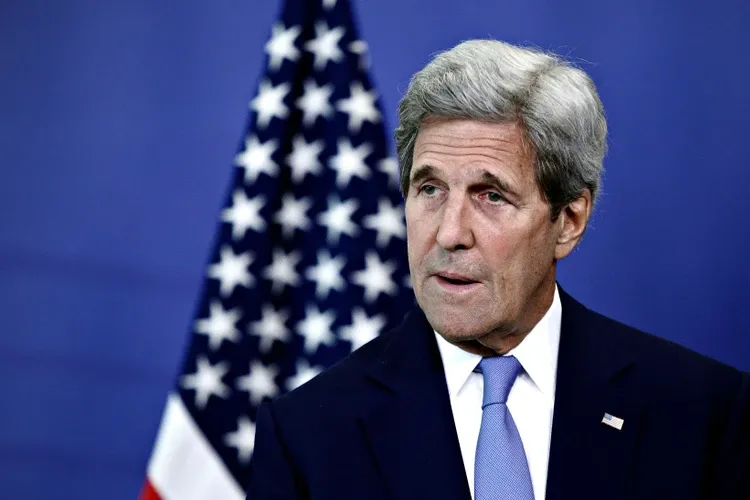United States Special Presidential Envoy for Climate John Kerry’s diplomatic trip to China this week has put a spotlight back on the world’s seemingly inescapable conflict between its human rights concerns and the transition to so-called clean energy.
Kerry’s trip included him praising the Chinese Communist Party’s “incredible job” expanding renewable energy sources. However quickly China has moved, on the other hand, it appears not to be enough as they continue to see high coal production and pressure from the White House to take climate more seriously. National Security Advisor Jake Sullivan notably browbeat the country this week, warning that it shouldn’t retreat to presenting itself as a developing country that might need more leeway on climate.
Their comments came weeks after a report that the communist nation would reach its 2030 renewable energy targets five years earlier than expected. Another report prior to the Kerry trip, however, cast doubt on how “clean” that energy transition was in China and around the world. Chinese overseas investment in particular was linked in an analysis by the Business and Human Rights Resource Centre to human rights violations: the group found 102 allegations of abuses between 2021 and 2022.
A spokesperson for the entity said that China’s ambitious energy goals were “overshadowed by the serious human rights risks associated with their overseas business operations.”
“Our data shows human rights and environmental abuse is prevalent in the exploration, extraction and processing of transition minerals,” the spokesperson added. “Local communities are bearing the brunt of these abuses, with their livelihoods being affected, land rights being ignored and the erosion of Indigenous rights. Most companies don’t even have human rights policies in place, and those that do were linked to the highest number of allegations, indicating significant need for improvement when it comes to both policy and practice.”
It’s not just China either. The group reported last month that it found 510 allegations of human rights abuse between 2010 and 2022 related to cobalt, copper, lithium, manganese, nickel, and zinc, all of which are key minerals used for renewable technologies. Many of these operations seem to be at least somewhat counterproductive as the allegations include environmental hazards. Last month’s report noted that over one-quarter of the “allegations are related to either water pollution, water access issues, or both.”
That same group ranked Glencore, one of Tesla’s battery material suppliers, as one the companies receiving the most allegations. Tesla represented 60% of electric vehicle sales in the United States, where President Joe Biden has called for half of new vehicle sales to be electric by the end of the decade. That goal, combined with other climate-conscious objectives, indicated a growing reliance on critical minerals, with many coming from China.
Treasury Secretary Janet Yellen also made headlines earlier this month for calling out the communist nation for restricting exports of germanium and gallium, critical minerals for semiconductors and electric vehicles, to American companies.
That trip, along with ones by Kerry and other senior officials, indicated an administration interested in lessening bilateral tensions over Taiwan and other issues. It also points to a deep commitment to cooperation despite accusations against the communist regime over numerous human rights abuses, including outright genocide of Uyghur Muslims.
Just before his trip to China, Kerry demurred as Rep. Darrell Issa (R-CA) described Chinese President Xi Jinping as a dictator. Kerry said during a committee hearing that Xi "wields enormous power as the leader of China” and that the issues are “water off a duck's back.” The State Department, which accused China of genocide two years ago, has attempted to claim that both human rights and green energy objectives go “hand-in-hand.”
“Support for democracy, economic development, transparency, human rights, and human dignity,” a spokesperson said, “goes hand-in-hand with climate progress and these goals remain at the forefront of American foreign policy.”
The Biden administration has blocked Chinese solar shipments over slave labor concerns. There appear to nevertheless be clear tradeoffs that even leading Democrats have acknowledged.
Kerry has offered varying statements on the conflict between human rights and climate objectives that rely on Chinese industry. For example, he told lawmakers that China’s use of forced labor was “a problem” and indicated the administration was opposed to trading compromised products. However, Kerry also said that “life is full of tough choices” and asserted that “first and foremost, this planet must be protected.”
Former House Speaker Nancy Pelosi (D-CA) similarly prioritized climate two years ago when she noted abuses but said “climate is an overriding issue and China is a leading emitter in the world,” adding that the United States and China “must work together” on the matter.



